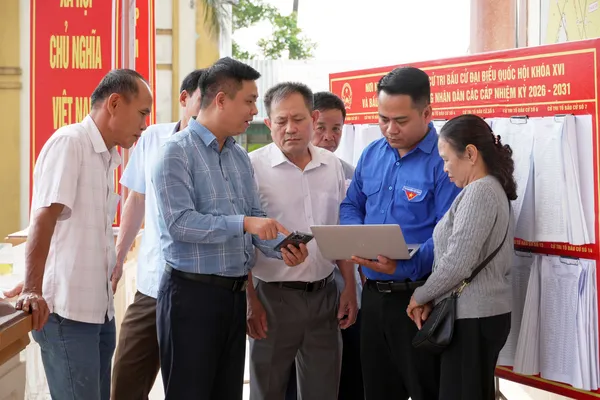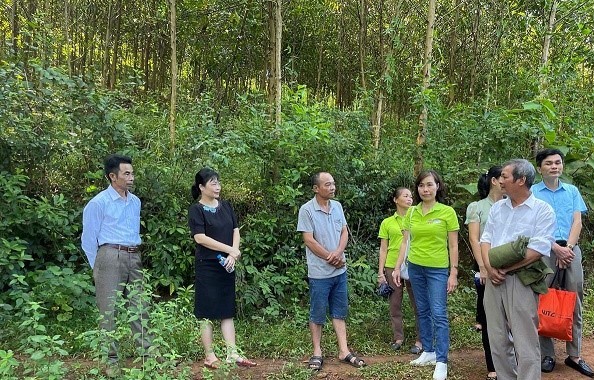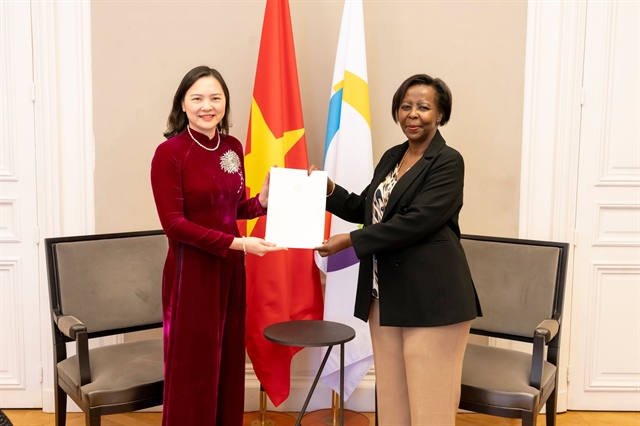 Society
Society


|
| People visit a model of sustainable forest growth in the northern province Hòa Bình under the FFF programme. —Photo hoinongdan.hoabinh.gov.vn |
HÀ NỘI — Small-scale farmers provide an estimated one third of global food output but are facing increasing fiercely climate conditions such as droughts, storms and floods, necessitating measures to boost sustainable development to cope with climate change, experts said at an international conference opened in Hà Nội on Thursday.
The two-day conference served as a venue for experts and forest and farm producer organisations (FFPO) to share experiences and discuss measures to cope with climate change while improving the livelihood of local residents.
Building climate resilience is an essential part of sustainable development, according to Mai Bắc Mỹ, Director of External Affairs and the International Cooperation Department of the Vietnam Farmers' Union.
Research shows that the impact of climate change will spread across national borders and global supply chains have been more vulnerable to this impact together with disruptions caused by the COVID-19 pandemic and regional wars.
In this context, the Forest and Farm Facility (FFF) programme was designed to support FFP in coping with climate change and improving livelihoods.
Participants at the conference shared models of climate-resilient businesses in order to encourage the expansion of good businesses across the FFPO network, and discussed challenges and experiences in developing these business models.
Chairman of the Vietnam Farmers' Union Lương Quốc Đoàn said the union has promoted its role in implementing State and Party policies and regulations in agricultural development towards the millennium goal of shifting from a "brown" economy to a green economy.
With support from international organisations, the agricultural sector of Việt Nam posted growth from 2.8 per cent to 3 per cent, helping to ensure national food security. Exports of agro-forestry and fisheries reached over US$48 billion in 2021.
The total area of forest is estimated at 14.2 million hectares, equivalent to 43 per cent of the total area of Việt Nam. In 2021, exports of wood products reached $15.9 billion. In the first eight months of 2022, the figure was over $11.8 billion, a year-on-year increase of 6.2 per cent.
The farmers' union has recently guided farmers to move towards green agricultural production and launched movements to encourage them to reduce energy consumption, solid waste and gas emissions in agricultural production, Đoàn said.
Farmers' organisations have also built models of green agriculture and expanded effective agricultural production models along with actively contributing opinions to build and mobilise farmers to implement programmes and plans to effectively use natural resources, he said.
Since 2015, the farmers' union was the main partner in implementing the first phase of the FFF programme in Việt Nam. It has continued to implement the second phase of the programme from 2019 to date.
The aim of the programme is to help FFPO, including woman, youth and ethnic minority people to become the key factors of change in climate change adaptation and improving the livelihoods of people.
The FFF programme is being implemented in five localities, namely Yên Bái, Bắc Kạn, Hòa Bình, Sơn La and Thái Nguyên, with the goal of improving farming and forest production and business capacity for local residents as well as increasing access to markets and finance for cooperatives in applying measures to reduce the negative impact of climate change.
The programme has also provided training to strengthen the capacity of farmers' unions at all levels to help them operate more effectively.
Cooperatives and forest-based communities in areas benefitting from the FFF project have been trained in knowledge and skills to produce and trade agricultural and wood products, risk management, livelihood improvement and development of models of growing forests and biodiversity. They were also guided to implement measures to develop organic and environmentally friendly agriculture and reduce greenhouse gas emissions.
It has also improved the capacity for forest and farm production cooperatives in developing management methods, sustainable forest production and trade, and in encouraging women, youths and ethnic minority people in production and trade of agro-forestry products. — VNS




